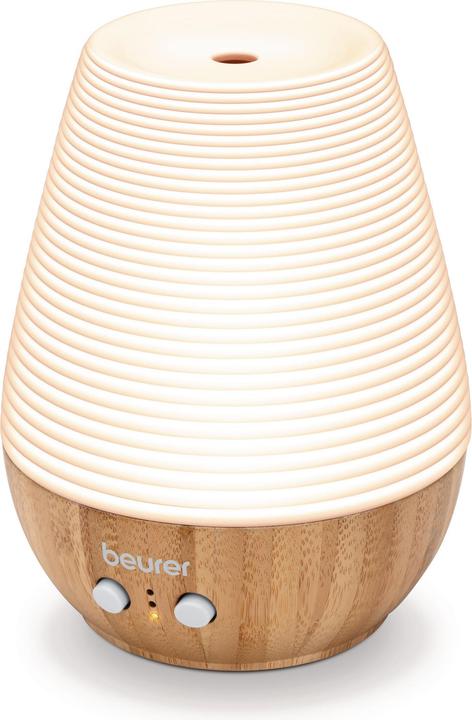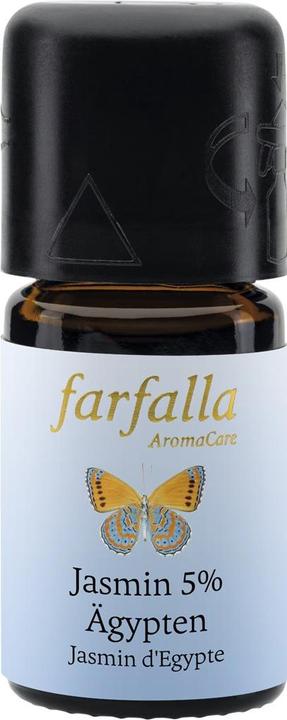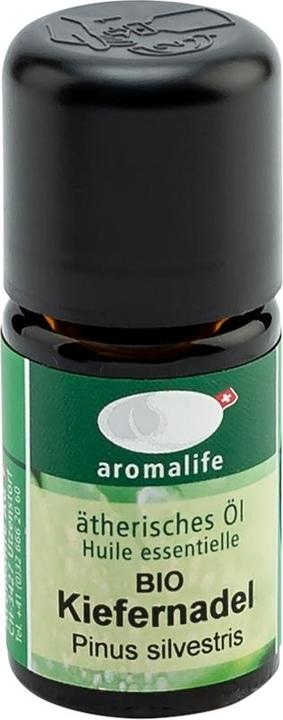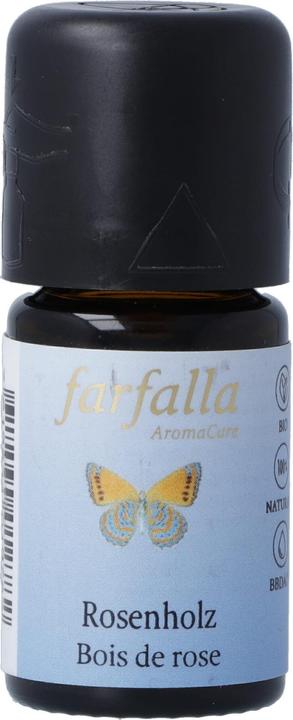

Smells nice and has an effect – what fragrance diffusers do to your body
How to feel great at the push of a button? Start up an aroma diffuser containing high-quality essential oils. Find out how this works in detail from a fragrance expert and an aromatherapist.
Sudoku, crossword puzzles, Wordle? Forget these types of (digital) gimmicks. Aroma diffusers have a lot more going for them: «Consciously taking a sniff of your aroma diffuser a few times a day, is better training for your brain than solving a Sudoku or a crossword puzzle,» says Hanns Hatt. He’s an author, biologist, chemist, physician and has been researching olfaction for over 20 years. All you need for olfactory training is a diffuser and some essential oils. So, whip out your diffusor, take a deep breath and enter the wonderful world of fragrances.
How smelling works
Humans are equipped with about 20 million olfactory sensory cells, distributed throughout the body. These, in turn, can be divided into 350 different groups of scent receptors. With each receptor or sensor, our organism recognises a specific scent. For example, there are a few hundred cells that recognise vanilla, while others are in charge of making out musky scents. A soon as these sensors are hit with a scent molecule, they send it down a nerve to the brain: vanilla cell hit by vanilla molecule! Hatt, who’s an expert in the field, explains:
«The information is stored in the brain. At the same time – and this is the exciting thing about smelling – it evokes the feeling you had when you first smelled vanilla.» But that’s not all: «Smells often even remind us of images stored in the brain.» In other words, not only do scents activate our brain, but also our memory.
By the way, perfumers have the same 350 receptors as any human, but they train their receptors every single day. This gives them a crucial advantage when they’re older, when the ability to smell tends to decline. A study conducted by scientists even revealed that elderly people with a poor sense of smell were likely to die earlier. Parkinson’s disease and senile dementia are very often accompanied by a loss or deterioration of olfactory perception, Hatt elaborates. And he explains what this «superior brain jogging» is all about: «Training up your sense of smell activates more brain areas than solving puzzles.» So, how do you consciously go about (practising) smelling on a daily basis? With the help of a fragrance diffuser, for example.
Aromatherapy isn’t mumbo-jumbo
Generally speaking, fragrances have an effect on two different levels: on the body and on the mind. As we’ve already learned, the effect they have on the mind differs from person to person. Whether I like a fragrance depends on what memories I associate with it. «The physical effect, on the other hand, is the same for everyone,» Hatt says.
Take lavender essential oil, for example. The fragrances linalool and linalyl acetate enter the brain via the blood and activate our calming and sleep sensors. «We recently conducted a sleep study with Charité Berlin and were able to prove that the jasmine-scented fragrance Gardenia Acetal (found in gardenias), combined with linalool from lavender, promotes sleep.» In other words, by putting lavender oil in your aroma diffuser, you will not only positively influence your emotions, but, at best, also tackle your sleep problems.
If you’ve been dismissing aromatherapy as hocus-pocus, it’s understandable. After all, many a charlatan has used the term aromatherapy to promote ineffective cures and make lots of money with it. Here’s Hutt’s take on that: «The scam usually involves a single scent that will cure anything from corns to a twisted bowel. This has absolutely nothing to do with aromatherapy.»
Aromatherapy does targeted work with fragrances. As does Swiss aromatherapist and author (link in German) Ursula Voneschen: «Aromatherapy primarily involves inhalation or application to the skin.» Scent molecules enter the limbic system and the hippocampus in the brain through the nose and affect our mood. They can have a calming or invigorating effect, reduce stress and relieve anxiety. This doesn’t exclusively happen through the nose’s olfactory mucosa. Fragrance molecules can also enter the bloodstream when you rub essential oils (mixed with fatty carrier oils such as jojoba oil) into the skin. They are detectable in the blood and breath after about 30 to 60 minutes.
Aroma diffusers: soothing your mind
Yes, genuine aromatherapy works. Not always and not equally well for everyone. And most importantly, Voneschen emphasises: «It’s not a miracle cure that gets rid of any ailment.» However, there are numerous studies demonstrating its effects on various medical conditions. Here’s an example: a solution consisting of ten per cent peppermint oil in ethanol works similarly well as paracetamol if you’re suffering from tension headache. Aromatherapy is definitely no hocus-pocus. So far, so good. But how does a fragrance diffuser work?
«Diffusing a scent in your home isn’t the same as an inhalation session at your aromatherapist’s. There, you’re doing targeted, concentrated and conscious work with fragrances,» says Ursula Voneschen. With ambient diffusion, the number of molecules reaching your body isn’t enough to have a significant effect on ailments. This means diffusers are primarily targeting your mind and general well-being. Or training up your sense of smell.
Using your fragrance diffuser properly
Today’s scent diffusers often work with ultrasonic technology – a bit of water, a few drops of an essential oil, switch it on and off you go. Electrical vibrations are converted into vibrations in the diffuser, breaking down the oil into tiny microparticles that are dispersed in the water. The diffuser then releases the mixture into the ambient air as a fine mist. Not only does it give off an intense fragrance, but it also humidifies the indoor air – a real plus in winter with the dry heating air. When the diffuser runs out of water, it automatically switches off. Voneschen, who owns several diffusers herself, offers the following advice: «Change the water at least every 24 hours to prevent germs from accumulating.»
You can also get diffusers that do without water entirely and use only essential oil. They’re generally quieter, give off a more intense fragrance and break up the oil by means of a compressed air pump. They’re less suitable for larger rooms, because their range is smaller than diffusers that work with a mix of oil and water. Both diffuser types are a good alternative to a fragrance oil burner. Speaking of which...
Fragrance oil burners – stay away!
Remember old-school fragrance oil burners? The ones that use water and essential oil in the dish on top and a tiny candle underneath. Thankfully, nobody has to resort to those anymore. They can be a health hazard. Intense heat is generated by the flame of the candle. This produces unhealthy fumes, such as soot and formaldehyde, which you then breathe in.
You should especially avoid fragrance oil burners if you share your home with children or animals; they’re particularly sensitive to these substances. Diffusers the better option, because they don’t burn the oil but nebulise it. This means there are no toxic fumes.
Shopping guide: what makes a good aroma diffuser?
Some essential oils may damage plastic. «Glass or high-quality plastic should be standard in a diffuser, but unfortunately this isn’t always the case with models manufactured in China,» the aromatherapist emphasises. If you’re thinking of getting a diffuser, make sure you the materials used are of high quality.
To train your nose, you should change the scent in your diffuser from time to time. Otherwise, you’ll get used to the smell and no longer notice it. Tip number two: get several essential oils. Go for quality and make sure they’re 100 per cent all-natural essential oils. Very cheap oils are usually of poor quality and contain unhealthy solvents or synthetic fragrances.
How often you use your diffuser, on the other hand, is a matter of taste. What’s important to know is that it shouldn’t run non-stop. That’s why diffusers usually have an interval circuit installed. As Voneschen explains, «Too many fragrance molecules in the air can cause headaches or nausea.» Features like LED lighting, extra fine nebulisation or the like are nice gimmicks, but not a must.
To get you started in the world of fragrances, here’s a list of 5 essential oils plus their effects and uses in aromatherapy.
5 essential oils and their effect
Jasmine
- Smells sweet and sensual.
- Has a relaxing, harmonising and strengthening effect especially on your mood.
- In aromatherapy, jasmine is used to combat anxiety and exhaustion, among other things.
Pine
- Smells of menthol and herbs.
- Stimulates blood circulation and concentration.
- In aromatherapy, pine oil is used in the case of respiratory diseases, circulatory disorders and stress conditions.
Lavender
- Smells floral and herbaceous.
- Is one of the few essential oils that can be applied undiluted to the skin.
- Has a calming effect and promotes sleep.
- In aromatherapy, the scent is used in the case of restlessness and sleep disorders, as well as muscle cramps.
Lemongrass
- Smells fresh, cool and slightly lemony.
- Has a mood-lifting and stimulating effect.
- In aromatherapy, lemongrass is used in the case of states of weakness, depressive moods or colds.
Rosewood
- Smells floral, woody and rosy.
- Has a strong antibacterial, strengthening and balancing effect.
- Aromatherapists and therapists use rosewood oil in the case of skin inflammations, wounds and depressive moods, among other things.
Author: Annalina Jegg
/ Header image: shutterstock
The adjectives that describe me? Open-minded, pensive, curious, agnostic, solitude-loving, ironic and, of course, breathtaking.
Writing is my calling. I wrote fairytales age 8. «Supercool» song lyrics nobody ever got to hear age 15 and a travel blog in my mid-20s. Today, I’m dedicated to poems and writing the best articles of all time.
Interesting facts about products, behind-the-scenes looks at manufacturers and deep-dives on interesting people.
Show allThese articles might also interest you

Background information
Better sleep, calming scent – myths and facts about Swiss pine
by Moritz Weinstock

Background information
A visit to farfalla: essential oils from around the world
by Anna Sandner

Guide
Onion compress, essential oils or tea? I’ve tried every cold remedy there is
by Stefanie Lechthaler








